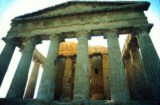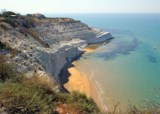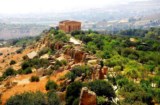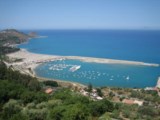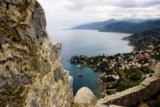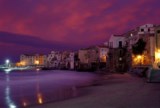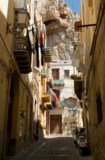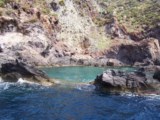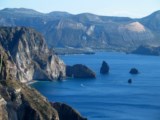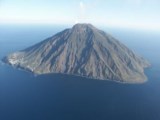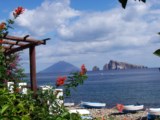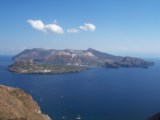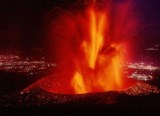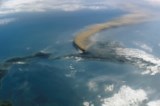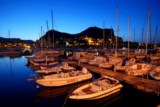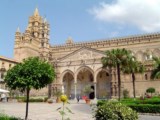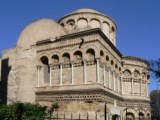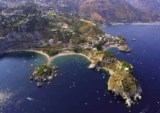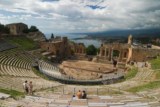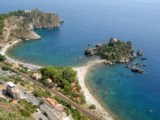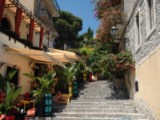
HOTEL ROOMS ACCOMMODATIONS OFFERS IN SICILY
STAY BY GEOGRAPHICAL DESTINATION IN COASTAL MOUNTAIN OR RURAL AREA
Wine & Food
Mount Etna
Eolian Islands
Pantelleria
Lampedusa
Ustica
Discover this wonderful island,
home of great historic and romantic sites like Agrigento
and Taormina and only few hours away from other beautiful locations of
Southern Italy like Calabria and it's wonderful rugged coast, Campania and
it's splendid sites like the Amalfi Coast, Sorrento, Capri, or even Apulia and
it's characteristic Trulli Houses.
This beautiful island hosts
the Mount Etna, Europe's highest and most active volcano, which looms
menacingly over the eastern end of the island. If you are lucky, you could
witness the glow of molten lava flowing from fissures in the rock and the most
spectacular fireworks display you have ever seen.
This is the island where Africa meets Europe blending Baroque with Classical. Sicily is a land
where not only you can sit and enjoy the heat of the sun but also
discover and explore its Greek Temples, Baroque churches and any other
historical site you can find. No need for great studies to make great
discoveries: Sicily will just show them to you, with all their glamour.
The name of Sicily has varied and adapted various times going from
Trinacria to Sicel and finally to Sicily, but
the changing rule over Sicily, from the early Greeks and Romans to the day
Italian Republic, has yielded a strong and unique culture.
It features sprawling green hills to perched
villages, to walks beside the 15th century lava of Mount Etna,
the choice to visit this Diamond of the
Mediterranean is endless and inspiring.
Sicily's position in the Mediterranean, lying as it does between Europe and
Africa, has over the centuries, made the island a strategic centre for trade.
However, it has also been target of many invasions by foreign conquerors,
including a brief occupation by the British in the early part of the 19th
century.
Food & Wine
Other Info

The Nature and Variety of Sicily's cuisine has surely been influenced by it's
history the regions history, in fact the influences from North Africa, Greece and
Spain are evident.
Sicily is very well known nationally for its wonderful sweet dishes. The most
famous are the "Cannoli", deep fired pastries stuffed with ricotta, and rolled in bitter
chocolate, many have tried to repeat the recipe out side of this region but
Sicily's Cannolo is "best served in Sicily" and doesn't even taste the same if
you'd try to take it with you in Calabria that can be only few minutes away
with the "Traghetto".
Seafood is abundant, fresh, and presented in great variety. This swordfish
dish is a must, "Pescespada"
stuffed with brandy, Mozzarella and herbs cooked on a charcoal grill.
Souvenirs & Suggestions
Taormina has
many exclusive boutiques, where you can find the top designer labels. A
relaxing walk along the "Corso Umberto" is a must
for the fashion conscious, either just to window shop, or maybe for that
special purchase.
Why not take home with you one of those colourful
ceramics, with such diversity of design and style , they always remind you of
that warm, hot diamond of the Mediterranean, Sicily.
Try the world famous fortified
Marsala wine, produced only in Sicily, similar to the UK's known Port
wine, you'll surely like to take a taste of Sicily back home with you.
WHERE TO EAT - WHERE TO HAVE FUN - SPONSORS |
| |
|
| |
|
YOUR ADVERTISEMENT BANNER HERE |
Myth
Sicily was chosen by the gods of the Olympus as the scene of their stories of love and
hatred, of passion and revenge, of sudden wrath and deep compassion.
One day, to free her daughter Proserpine from the insistent courting of Apollo and Mars, Ceres decides to hide her in a safe place: Sicily. But as Proserpine is picking flowers along the banks of Lake Pergusa near
Enna, she is sighted by Pluto, the god of the underworld, who wants her as his
bride. Pluto was a god with rough manners, so he breaks out of the round,
carries away poor Proserpine on a golden chariot pulled by four black horses and disappears into an abyss
that breaks open near the spring of Arethusa.
Only the nymph Cyane hears her cries and rushes to her aid, but will be
punished for doing so.
Ceres starts her wanderings across the island to seek her lost daughter and uses the
firebrands lit in the Etna to dispel the shadows of the night.
The pain-stricken goddess of fertility leaves everything to wither away and
perish. After losing her sickle in Trapani (believed by some to be at the origin of the cape in front of the city), the
goddess reaches the court of King Keleus who generously gives refuge to her.
To thank him for his hospitality, Ceres raises his son Triptolemus and reveals
to him the secrets of agriculture. The goddess's grief touches Zeus who sends
Hermes to intercede with Pluto to release Proserpine who in the meantime has
eaten the pomegranate (the fruit symbolizing the bounds of love). She agrees
provided that she can return to him in the underworld for a part of the year.
This explains the passing of the seasons and the rites dedicated by man in
their honour to propitiate a fruitful season and to favour the return to the
goddess on earth.
Erice too was the scene of godly
events. According to tradition, Astarte, the goddess of fecundity, lived
there. A huge bonfire burned in her temple to guide sailors at sea to the
port like a beacon in the night. Once ashore, they would pay homage to the
goddess in the temple where once a year the sacred doves would be set free
to reach the homonymous twin temple of Sicca Veneria (today Kef) in Tunisia
(their flight is remembered in the city's coat of
arms). The vast expanse of the
plain of Milazzo was chosen by a god as the pasture for his
herd. The port of Messina was the work of Orion, the titan punished by the gods. Akragas was a giant
born of Zeus and the nymph Sterpes. The construction of the city bearing his
name is attributed to the work of his powerful arms.
|



